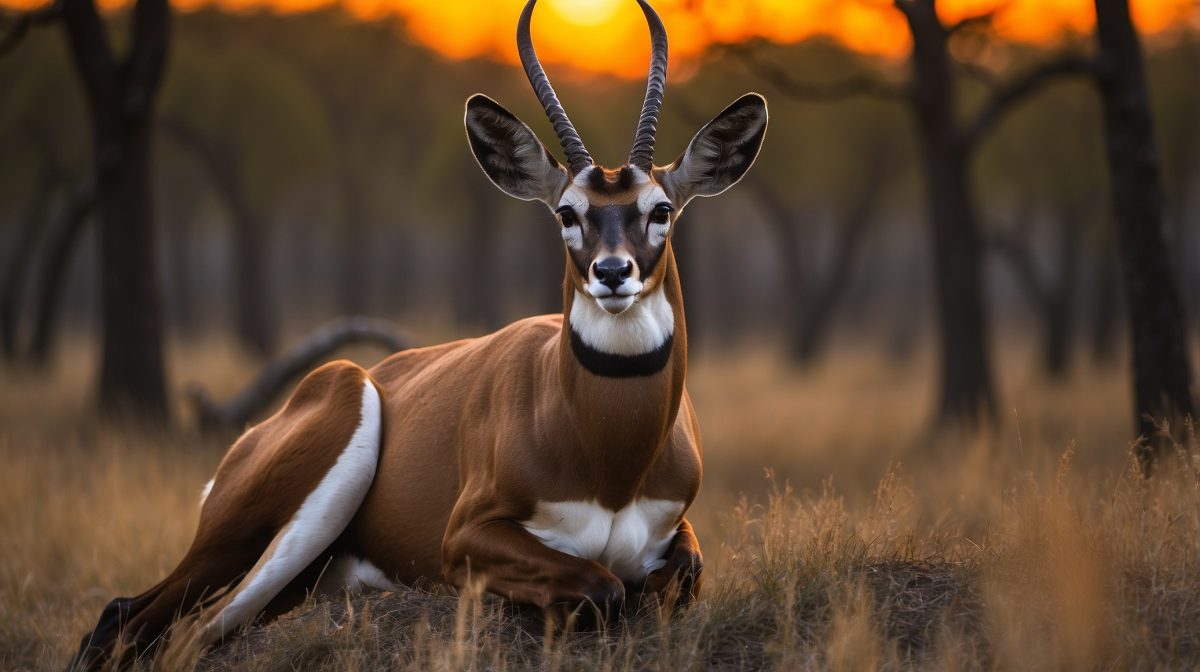The Blackbuck Antelope in Texas
Let’s talk about these fine creatures – the blackbuck antelope. They’ve been roamin’ the Texas Hill Country for some time now, and they’ve become as much a part of the landscape as the bluebonnets and live oaks. These antelopes are somethin’ special, with their long, spiralin’ horns and distinctive coloration, and they’ve adapted well to our Texas way of life.
Take the JL Bar Ranch Resort, for example – it’s one of the many places where blackbuck populations are not just survivin’, but thrivin’. The history of these animals and their integration into our huntin’ culture is a story worth tellin’. They’re not just another game animal; they’re a symbol of the rich huntin’ heritage we hold dear in Texas Hill Country.
Understanding the Hunting Seasons
Now, every good hunter knows that timin’ is everything. In Texas, we got general huntin’ seasons that y’all need to be aware of, but when it comes to blackbuck antelope, there’s more to consider than just openin’ and closin’ dates. The optimal time for huntin’ these antelopes can vary, and it’s often influenced by factors like weather patterns and breedin’ cycles.
For instance, you might find that the cooler months bring out different behaviors in blackbuck, makin’ them easier to spot and track. Understandin’ these seasonal patterns is key to plannin’ a successful hunt. So, whether you’re a seasoned hunter or new to the game, payin’ attention to these details can make all the difference out there in the field.
Texas Hunting Regulations for Blackbuck Antelope
Alright, let’s get down to brass tacks – the regulations. Whether you’re a Texas resident or comin’ in from outta state, you’re gonna need the right licensin’ to hunt blackbuck. And that’s just the start. There are bag limits to consider, and legal huntin’ hours to follow, so you’re huntin’ within the confines of the law.
Plus, there are special considerations dependin’ on where you’re huntin’. Private land like the JL Bar Ranch Resort might have different rules compared to public land. It’s all about respectin’ the landowner’s wishes and the local wildlife management practices. Make sure you’re informed before you set foot on any property with your gear.
Ethical Hunting Practices
Ethical huntin’ is the backbone of conservation, and in Texas, we take it seriously. It’s about more than just the chase; it’s about respectin’ the animal and its habitat. By practicin’ selective harvest and followin’ population management strategies, hunters play a critical role in maintainin’ the health of blackbuck herds.
And when it comes to the hunt itself, ensurin’ a humane harvest is paramount. This means makin’ sure you’ve got the skills and the right equipment to take down an animal quickly and ethically. Remember, ethical huntin’ isn’t just good sportsmanship; it’s our duty to the land and the legacy we leave behind.
Preparing for Your Hunt
Now, before you head out, let’s talk gear and equipment. From the right firearm to the proper clothin’, bein’ well-equipped is half the battle. You’ll want to consider the terrain and the weather when packin’ for your hunt. And don’t forget the essentials for trackin’ and scoutin’ – knowin’ your quarry’s habits can lead you to success.
Safety is another critical aspect. Whether you’re navigatin’ rough terrain or handlin’ firearms, bein’ mindful of safety measures is a must. Always let someone know where you’re goin’ and when you expect to return. A safe hunt is a good hunt, and that’s somethin’ you can hang your hat on.
Conclusion
In conclusion, hunting blackbuck antelope in Texas is a unique and exhilarating experience that requires knowledge, preparation, and respect for the law and the land. By following the guidelines and embracing the spirit of ethical hunting, you’ll be contributing to the conservation of these magnificent animals and ensuring that the tradition of Texas Hill Country hunting thrives for generations to come.
By understandin’ the nuances of blackbuck antelope huntin’ in Texas, y’all are sure to have a memorable and respectful hunt. Just remember to keep up with any changes in the laws, as these can shift like the winds over our beautiful Texas plains. Y’all take care now and happy huntin’!
FAQs
Do I need a special permit to hunt blackbuck antelope in Texas?
No special permit is required, but you do need a valid hunting license.
Can I hunt blackbuck antelope year-round on private ranches like JL Bar Ranch Resort?
Yes, on private ranches like JL Bar Ranch Resort, hunting can typically occur year-round, but always check the ranch’s specific rules.
What’s the best time of day for hunting blackbuck antelope?
Dawn and dusk are prime times for hunting blackbuck, as they’re most active during these periods.
How can I tell the difference between a trophy blackbuck and a younger one?
A trophy blackbuck usually has longer, more spiraled horns and a darker coat compared to younger ones.
Are there any restrictions on the type of firearm or ammunition I can use for blackbuck hunting?
There are no specific restrictions, but it’s best to use a caliber suitable for medium-sized game to ensure a humane harvest.


